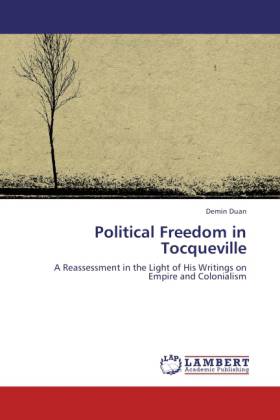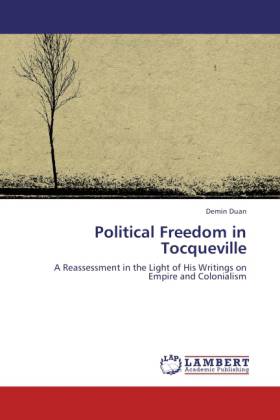
- Afhalen na 1 uur in een winkel met voorraad
- Gratis thuislevering in België vanaf € 30
- Ruim aanbod met 7 miljoen producten
- Afhalen na 1 uur in een winkel met voorraad
- Gratis thuislevering in België vanaf € 30
- Ruim aanbod met 7 miljoen producten
Zoeken
Political Freedom in Tocqueville
A Reassessment in the Light of His Writings on Empire and Colonialism
Demin Duan
Paperback | Engels
€ 105,45
+ 210 punten
Omschrijving
This book is a study of Alexis de Tocqueville's notion of political freedom in the light of his writings on empire and colonialism. The author argues that Tocqueville's imperialistic stance distinguishes him remarkably from his liberal counterparts, such as John Stuart Mill. Tocqueville's notion of freedom and his political thought in general are not primarily connected with the discourse of natural human rights present in the early modern period. Rather, his concern largely revolves around the preservation of political freedom in modern democracy, which makes him a disciple of earlier traditions, such as republicanism. By looking into his main works, the author tries to prove that Tocqueville is a political thinker "before liberalism," in the sense that he is very much uninfluenced by modern liberal discourses. And yet Tocqueville is a highly relevant thinker in our contemporary world, in which modern liberalism faces crisis and needs to be reflected upon.
Specificaties
Betrokkenen
- Auteur(s):
- Uitgeverij:
Inhoud
- Aantal bladzijden:
- 244
- Taal:
- Engels
Eigenschappen
- Productcode (EAN):
- 9783848415489
- Verschijningsdatum:
- 1/03/2012
- Uitvoering:
- Paperback
- Afmetingen:
- 150 mm x 220 mm
- Gewicht:
- 382 g

Alleen bij Standaard Boekhandel
+ 210 punten op je klantenkaart van Standaard Boekhandel
Beoordelingen
We publiceren alleen reviews die voldoen aan de voorwaarden voor reviews. Bekijk onze voorwaarden voor reviews.








